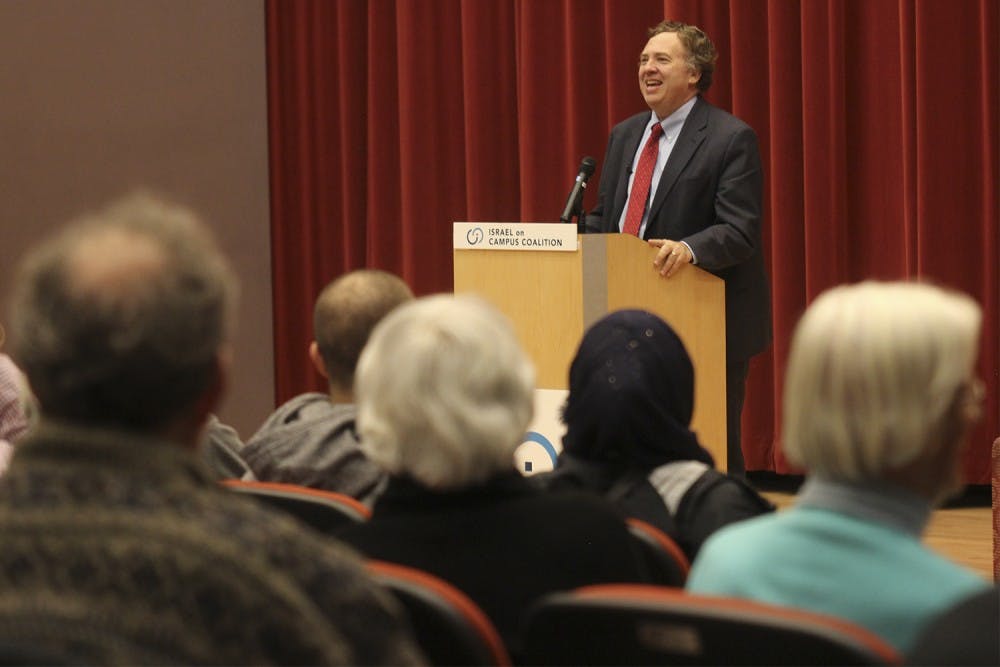David Makovsky, who worked on Secretary of State John Kerry's negotiating team during recent Israeli-Palestinian peace talks, and Ghaith Al-Omari, who has worked for the Palestinian Authority, spoke at the FedEx Global Education Center Wednesday night. Senior Writer Liz Bell sat down with them before the event.
THE DAILY TAR HEEL: Since the failure of the peace talks in April 2014, many are concerned that the Israeli-Palestinian conflict has only worsened since and that a peaceful resolution seems far-fetched. How would each of you describe the current state of the conflict?
GHAITH AL-OMARI: For those of us who have been following this conflict for a long time, we’ve seen the ups and downs. This very much qualifies as a down.
On the one hand, we, for the first time in history, have a consensus on what the solution is: a two-state solution ... Yet, the paradox is we haven’t been further away from an agreement on this because the political leaders are not ready for that ... Now, what do you do about that, is the question.
You can either lament it, as many do, and give up, which would confine the two peoples to another generation of violence. Or do you find solutions, which are less than the perfect full solutions, but ones which can move us forward?
DTH: What are some concrete next steps toward a peaceful resolution?
DAVID MAKOVSKY: Since we made this broad agreement that we’re not going to have the two-state solution tomorrow, to me it’s more about maintaining the viability of the idea. In other words, how do you avoid foreclosing options to make this possible going forward?
I think it means, on the Palestinian side, some economic development (in certain areas of the West Bank) ... I think what we’ve seen with these stabbings on the Palestinian side is that a need for more religious leaders to be aware of the consequences of their words.
And on the Israeli side also ... if you want Israel to be a nation-state of the Jewish people with equal rights for all citizens and not become a bi-national reality where it loses that Jewish character, then I think it means, you declare that you’re not going to build over the security barrier. That’s 92 percent of the West Bank. Most of the settlers don’t live in that 92 percent.




